Traffic
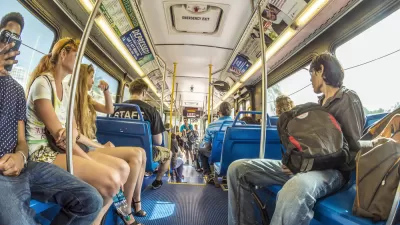
To Fight Climate Change, Support Public Transit
Electric cars may garner a lot of attention these days, but significantly reducing carbon emissions and urban congestion means investing in high-quality mass transit.
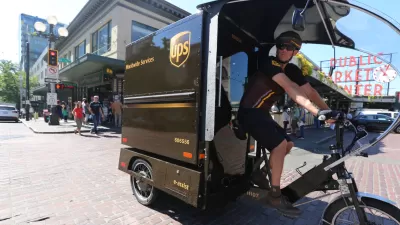
Cargo Bike Pilot Reduces Emissions by 30%
The program deployed electric cargo bikes in a small Seattle neighborhood to test the effectiveness of replacing delivery trucks with lighter vehicles in the last mile of delivery.
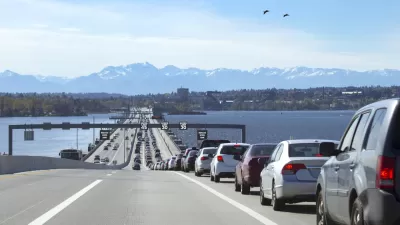
New Tool Calculates Induced Demand Caused by Road Widening Projects
The calculator can help transportation advocates and agencies project how many additional miles and emissions a highway widening project would create.
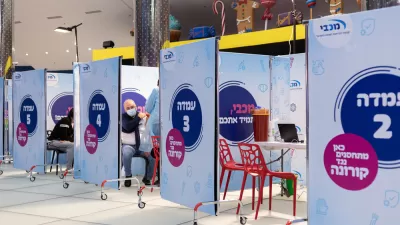
Boosters Bring Normalcy Back to Tel Aviv
Life in Tel Aviv is bustling again since COVID-19 vaccine boosters became accessible to anyone over 12 years of age. Traffic is now more of a concern than COVID, Mayor Ron Huldai told Bloomberg CityLab during a visit to 'quiet' Manhattan.
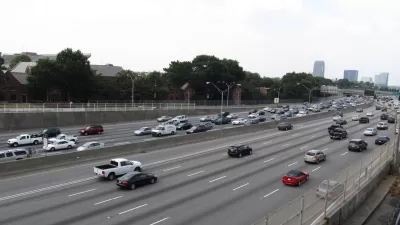
Why Don't State DOTs Believe in Induced Demand?
Despite evidence that widening roadways is only a temporary solution to congestion, a decades-long inertia leads states to continue pushing expansion projects against local opposition.
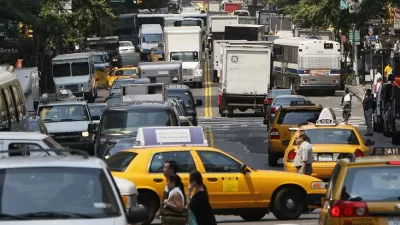
New York Mayor's 'Gridlock Alerts' Go Unheeded
Mobility advocates say the city must do more to make transit and alternative transportation modes more convenient for drivers.
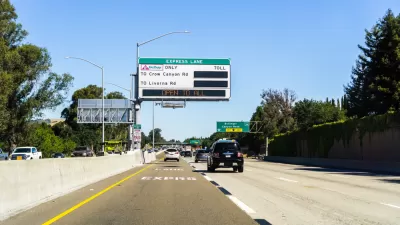
What Is Congestion Pricing?
Congestion pricing raises the cost of driving on certain roadways at certain times, reducing traffic,encouraging alternate transportation modes, and generating revenue from the use of infrastructure.

How to End the Commute Nightmare
The pandemic let many people experience a commute-free lifestyle, but can we reduce rush-hour traffic as we make our return to physical workplaces?
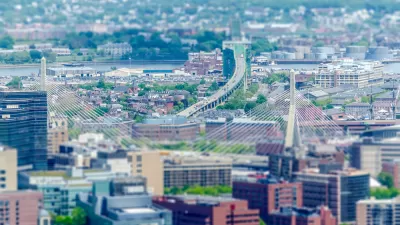
Post-Pandemic Traffic: Easier Morning Commutes, Heading for Afternoon 'Peak Spreading'
The Boston Globe recently published an analysis of Boston-area traffic through the pandemic, finding that congestion is finally recovering to pre-pandemic levels, but in new patterns.
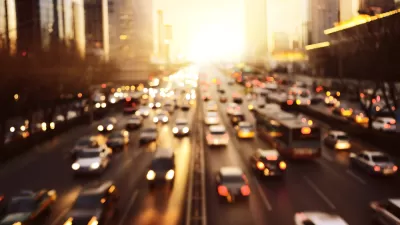
Study: Without Fewer Cars, Cities Will be 'Overrun by Gridlock'
Local leaders must invest in public transit and other incentives to reduce the number of private vehicles and congestion in cities.
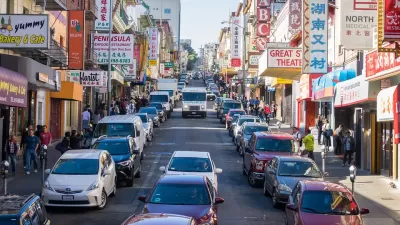
A Critical Evaluation of the Urban Mobility Report
The Urban Mobility Report (UMR) evaluates traffic congestion problems and recommends congestion reduction solutions. How well does it reflect travelers' priorities?
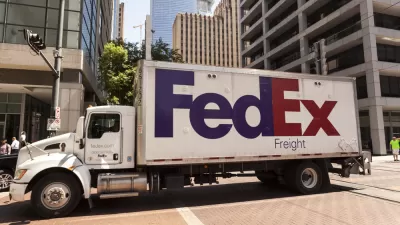
Cities Must Act to Curb Delivery Van Congestion
With more and more products available for doorstep delivery, Janette Sadik-Khan argues that policymakers have to proactively face the imminent "delivery deadlock" and take control of curb management.
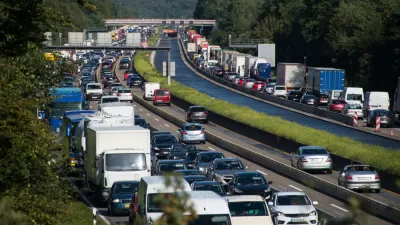
Can Pandemic-Era Changes Ease Painful Rush Hours?
If even a small fraction of workers continue to work remotely or have more flexible hours, the resulting reduction in rush hour travelers could have a significant impact on peak hour congestion.
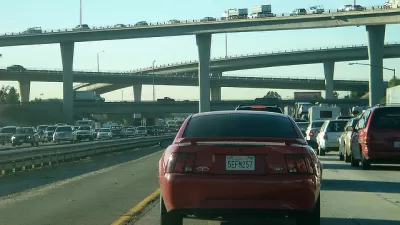
If You Build It, Cars Will Come: the Common-Sense Logic of 'Induced Demand'
Highway expansion has been shown, time and again, to increase traffic and congestion. Cities are finally getting the message.
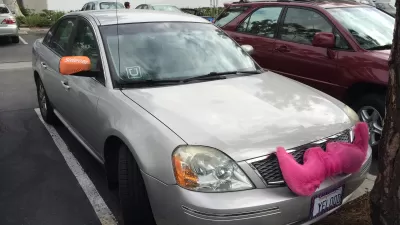
Study: Ride-Sharing Increases Urban Congestion
New research shows that ride sharing contributes to increased congestion and decreased transit ridership.
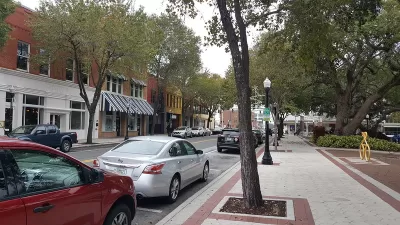
Case Study: Florida Road Diet Reduces Crashes, Adds Minimal Congestion
A controversial road diet has faced disapproval from local business owners, but data shows a significant reduction in crashes and a minimal increase in congestion.
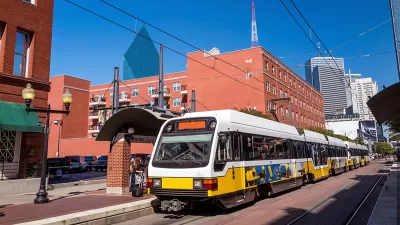
The Right Planning Consultant Could Make All of the Difference
Between DART service optimization and deciding the fate of I-345, Dallas has big of decisions to make. The right consultant, who understands accurate framing of planning issues, could help choose a route that best serves Dallasites.

The Outdated Models That Continue to Guide Transportation Planning
Transportation demand models offer predictions that are used to make important decisions, but their accuracy is questionable. The real issue, however, might be about the goals of planning and how urban life and livability are quantified.
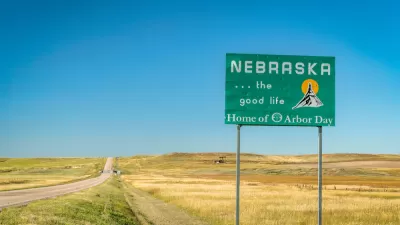
Traffic Returns to Normal in Nebraska
Rural traffic has recovered from COVID-19 lows earlier in the year and has even surpassed historic averages, according to the case study supplied by the state of Nebraska.
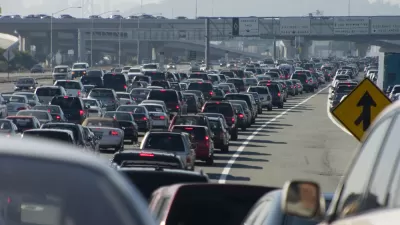
Failing to Account for Induced Traffic, Even When the Public Demands It
Induced traffic occurs when new highway capacity speeds up traffic, allowing travelers to drive further, increasing sprawl. A review of major highway project plans finds that most fail to accurately account for induced travel effects.
Pagination
Urban Design for Planners 1: Software Tools
This six-course series explores essential urban design concepts using open source software and equips planners with the tools they need to participate fully in the urban design process.
Planning for Universal Design
Learn the tools for implementing Universal Design in planning regulations.
Smith Gee Studio
City of Charlotte
City of Camden Redevelopment Agency
City of Astoria
Transportation Research & Education Center (TREC) at Portland State University
US High Speed Rail Association
City of Camden Redevelopment Agency
Municipality of Princeton (NJ)


































